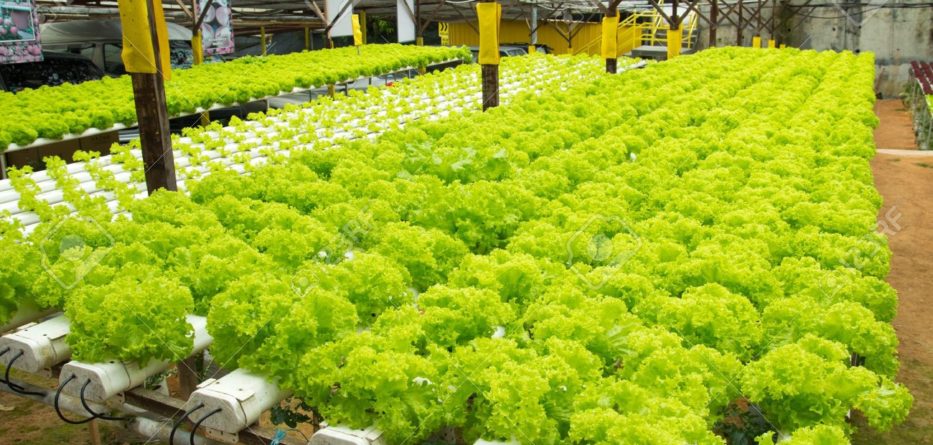Hydroponic gardening refers to growing crops without using soil. Instead of using soil to grow the crops, the hydroponic farmers will make use of grow medium. The commonly used grow medium for hydroponic gardening includes:
- Expanded clay
- Peat moss
- Coco coir
- Gravel
- Rockwool
- Sand
- Perlite
- Vermiculite
- Diatomite
- Glass
Hydroponic gardening dates back in the 7th century BC. This method of growing crops became popular recently when the E-Commerce giants like Amazon started listing the hydroponic gardening equipment. The recent studies on sustainable farming and food security have also contributed to the gain in popularity of hydroponic farming.
How Does Hydroponic Farming Work?
Before we get to the practical details of hydroponic farming, it is worth noting that there are different types of hydroponic systems. The different hydroponic systems work using the same methods. The hydroponic systems allow the plants to come into direct contact with the nutrients and the oxygen. There are both essential to the growth of the plants.
The soil is not used in hydroponic gardening. Instead, you can use either of the above listed hydroponic growing media. There are hydroponic systems that will not make use of growing media and a good example is the aeroponics systems.
In hydroponic gardening, the plants get the nutrients through the water based nutrient solution. There are different methods used for getting the nutrients to the plants roots. The approach depends on the different types of hydroponic systems. For instance, some hydroponic systems have the roots of the plant in direct contact with the nutrients solution.
Hydroponic gardening also requires lighting, which is an important factor in the growth of crops. Much like the nutrient solution, proper amounts of light should be delivered to the plant. This is through use of special kind of lighting for hydroponic gardening. Some hydroponic systems will rely on the use of natural lighting. This is the outdoor hydroponic setting. For the indoor hydroponics, the plants will derive lighting from an artificial source.
What Crops are grown in Hydroponics?
Hydroponic gardening has the capacity to produce more yields compared to the traditional greenhouses. However, to attain maximum yield, the grower should be aware of the crops that thrive in hydroponic systems. Good examples of the crops that thrive in hydroponics include Potatoes, Tomatoes, fruits, Mint, Basil, Lettuce, cabbage, green beans among others. Those are just examples of what to grow in hydroponic gardens.
What are the Advantages of Hydroponic Gardening?
You can grow crops anywhere. Hydroponic gardening supports indoor and outdoor gardening. You do not need a fertile piece of land to grow crops hydroponically. Second advantage is that hydroponic systems consume less water compared to soil-based farming. The hydroponics also reduces nutrient leaching into the environment. Therefore, this saves the environment while also saving the farmers money. The hydroponic systems require little space. This means that even those living in urban cities can grow crops hydroponically.
The downside of hydroponics is that installing the system can be much more expensive. This depends on the system you are setting up. Secondly, some hydroponics is affected by power outages.
Now you know what hydroponic gardening is and how it works. Invest in a hydroponic garden and start growing your vegetables. This will save you the money spent on groceries every evening.

